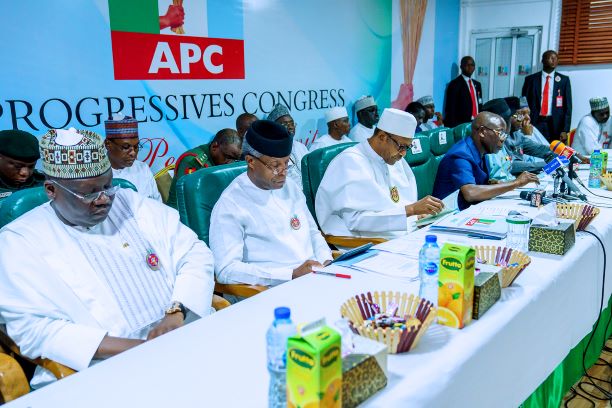By Adefolarin A. Olamilekan
The volatile nature of forex availability in the Nigeria’ economy exposes it dysfunctions. Regrettably, the over dependence on imports and the height of structural deficiency remains a dilemma. Nevertheless, when it comes to achieving economic stabilisation.
The managements of monetary variables such as money supply, credit, interest rate, inflation, foreign exchanges etc.
Consequently, this most be in synergy with fiscal policy volume of governments spending and tax administrations.
Succinctly, the central issues of monetary policy especially with the amounts of foreign exchange the country is earning is without it implications.
Conversely, we are confronted with the contradictions of our dependence on importation of foreign products.
Sadly, the situation as put so much stress on the nations foreign reserves.
Much so, that it as a way of reversing the gains from our major sources of foreign exchange earnings channels of crude oil sales,diaspora remittances, foreign direct investment and portfolio, and non oil exports.
For instance, in the same country and at this point. We are suffering from unfavourable and fluctuating terms of trade of exports.
That has often led to recurring deficits in the current accounts of the balance of payment of the Nation.
A situations were the prices of exported goods are negotiated from a weak position and couple with importation that weights our exportation.
Similarly, the rate some Nigerian seek education, medical and luxury estates in foreign countries cannot be ignored, with its own negatives impacts on the naira.
Hence, this demands a prudent actions in the applications of our monetary and fiscal policies to save the naira and boost economy development.
Remarkably, at the heart of the foregoing, one can situate the Central Bank of Nigeria (CBN) recently releases operating guidelines for it’s RT200 FX policy.
The news of the guideline’s was widely reported by the media.
In retrospect, the CBN had unveiled the RT200 FX Programme in February, 2022,.
Instructively, as part of the Apex bank measures to reduce the increasing demand for foreign currency by importer’s.
Considerably, the frequently and excessive pressure on the exchange rate is a draw back on the economic, with serious inflation effects.
According to the circular from the Apex bank Trade and Exchange Department stating the commitment of the “Central Bank of Nigeria’s (CBN) efforts to achieve its goal of $200 billion in Foreign Exchange (FX) repatriation from non-oil exports over the next five years”.
To this extent,the RT200 FX policy in the strident view of the CBN is borne out of the need to develop new strategies aimed at earning more stable and sustainable inflows of FX.
Subsequently, the policy target is in order to “insulate the Nigerian economy from shocks and FX shortages” .
However,as means of clarification on the FX200 policy guidelines, especially as the major anchor of the programme is focus on the Non-Oil Export proceeds repatriation Rebate Scheme.
The circular points out that the “rebate scheme was designed to incentivise exporters in the non-oil export sector to encourage repatriation and sale of export proceeds into the FX Market”.
Again, the guidelines entails a direct interest to wore exporters of finished and semi – finished goods that eligible for the incentive.
Accordingly, “Exporters shall qualify for the rebates only where repatriated export proceeds are sold at the Investors’ and Exporters’ (I&E) Window.
It added further that “Eligible transactions that qualify for incentives under the Scheme shall be Export of finished and semi – finished goods wholly or partly processed or manufactured in Nigeria,”
In the same vein , the circular listed registration with Corporate Affairs Commission (CAC) and Nigeria Export Promotion Council (NEPC), and sale of repatriated export proceeds at the I & E window as part of the guidelines”.
Nonetheless, the guideline’s concludes as a matter of necessity is subjects to review from time to time in accordance to trending state necessary by the CBN.
Critically, what is the take away from implementation of this policy.
For us a country with export based economy challenges, a sound and well articulated policy such as RT200 from the CBN.
Can only maximize it economic diversifications and productive export base objectively.
With a benefits of hindsight, the RT200 FX is an all important opportunity for exporters and investors to change the narrative around our dependence nature.
Instructively, at the core of the policy are exporters, off whom are the major driver behinds non oil sector exports.
This is in line with the CBN efforts to bridge the knowledge gap in the non-oil sector space been a major goal of increasing FX repatriation through exportation.
Fundamentally, RT200 policy is to reverse the economy from volatile sources of foreign exchange and for stable and sustainable inflows.
What need to done in furtherance to sustain the RT200 strategy.
First, we need to acknowledges CBN readiness to support exporters to boost that sector. However, it is imperative that the Apex bank and the government’s see to sustain the policy as a major economic boost to revenue in non – oil sector of the economy.
Secondly, Nigeria is currently an imports dependent economy with so much pressure on our currency and lately we cannot rely on the petrol dollar as the nation 95% source of revenue.
We call on the exporters to justifies the confidence the CBN have on them not to joapadize the policy through unscrupulous activity and round tripling in forex dealing
Lastly, the initiative of the CBN is to leverage our non – oil products, especially in agriculture,manufacturing, mining and raw materials explorations. It is expected that the apex bank would review the policy in consistent with national interest and best practices.





